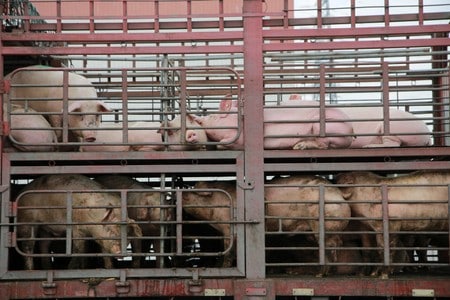BEIJING (Reuters) – China’s agriculture ministry said on Monday it will carry out checks on local veterinary authorities in 10 provinces as it tries to slow the ongoing spread of the deadly African swine fever virus.
The investigations come after China’s cabinet said earlier this month there were deficiencies in the country’s efforts to control and prevent the disease, which has reached every province of the country and is still spreading, almost a year after the first outbreak.
China is the world’s largest pork consumer and its massive hog herd has been decimated by the disease. African swine fever kills almost all pigs it infects but does not harm people. There is no vaccine or cure.
But many outbreaks are not being reported, farmers have told Reuters, with local officials in some provinces unwilling to verify or report the disease.
Vice agriculture minister Yu Kangzhen said recently the ministry was looking into reports of underreporting. He also said some places lacked the people and money to prevent and control the disease.
The Ministry of Agriculture and Rural Affairs said in a statement online that it will evaluate the veterinary agencies from two sample counties in the following provinces and regions: Hebei, Heilongjiang, Jiangsu, Henan, Anhui, Guangxi, Fujian, Sichuan, Yunnan and Shaanxi.
One county must be a place where there has recently been an outbreak of the disease, and it should be compared with another county, ideally administered by the same city or in the same area, where the disease has not occurred, it said.
The evaluations will be completed by Oct. 31 and a report on the findings will be submitted to the ministry by Dec. 31.
“This is what is needed. At a national level and even provincial level the policies were okay, but there were shortcomings in the way they were translated. And that’s something that needs to be worked out to stop this disease,” said Dirk Pfeiffer, a professor of veterinary epidemiology at the City University of Hong Kong.
He added however that it remained to be seen what the results of the evaluations would be and whether there would be any measurable impact on the disease in the short-term.
The ministry said earlier on Monday that the country’s hog herd had shrunk 25.8% in June from a year ago, with the number of sows down 26.7%.
Live hog prices have increased sharply since June and are pushing up pork prices and consumer inflation.
(Reporting by Dominique Patton; editing by Christian Schmollinger and David Evans)


